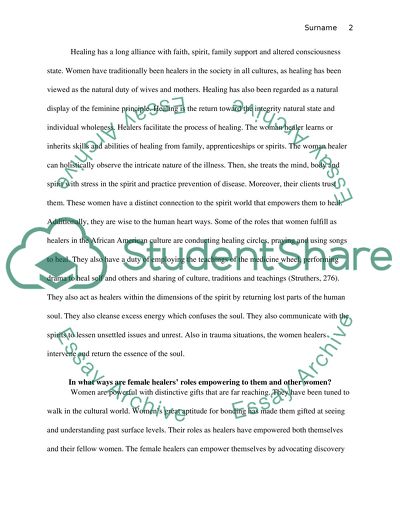Cite this document
(“Health and Women as Healers in the African American Culture Research Paper”, n.d.)
Health and Women as Healers in the African American Culture Research Paper. Retrieved from https://studentshare.org/miscellaneous/1683304-health-and-women-as-healers-in-the-african-american-culture
Health and Women as Healers in the African American Culture Research Paper. Retrieved from https://studentshare.org/miscellaneous/1683304-health-and-women-as-healers-in-the-african-american-culture
(Health and Women As Healers in the African American Culture Research Paper)
Health and Women As Healers in the African American Culture Research Paper. https://studentshare.org/miscellaneous/1683304-health-and-women-as-healers-in-the-african-american-culture.
Health and Women As Healers in the African American Culture Research Paper. https://studentshare.org/miscellaneous/1683304-health-and-women-as-healers-in-the-african-american-culture.
“Health and Women As Healers in the African American Culture Research Paper”, n.d. https://studentshare.org/miscellaneous/1683304-health-and-women-as-healers-in-the-african-american-culture.


